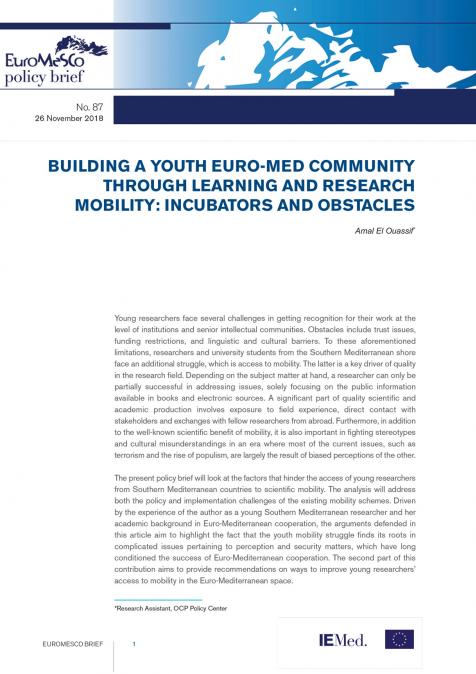Publications /
Policy Brief
Young researchers face several challenges in getting recognition for their work at the level of institutions and senior intellectual communities. Obstacles include trust issues, funding restrictions, and linguistic and cultural barriers. To these aforementioned limitations, researchers and university students from the Southern Mediterranean shore face an additional struggle, which is access to mobility. The latter is a key driver of quality in the research field. Depending on the subject matter at hand, a researcher can only be partially successful in addressing issues, solely focusing on the public information available in books and electronic sources. A significant part of quality scientific and academic production involves exposure to field experience, direct contact with stakeholders and exchanges with fellow researchers from abroad. Furthermore, in addition to the well-known scientific benefit of mobility, it is also important in fighting stereotypes and cultural misunderstandings in an era where most of the current issues, such as terrorism and the rise of populism, are largely the result of biased perceptions of the other.
The present policy brief will look at the factors that hinder the access of young researchers from Southern Mediterranean countries to scientific mobility. The analysis will address both the policy and implementation challenges of the existing mobility schemes. Driven by the experience of the author as a young Southern Mediterranean researcher and her academic background in Euro-Mediterranean cooperation, the arguments defended in this article aim to highlight the fact that the youth mobility struggle finds its roots in complicated issues pertaining to perception and security matters, which have long conditioned the success of Euro-Mediterranean cooperation. The second part of this contribution aims to provide recommendations on ways to improve young researchers’ access to mobility in the Euro-Mediterranean space.










